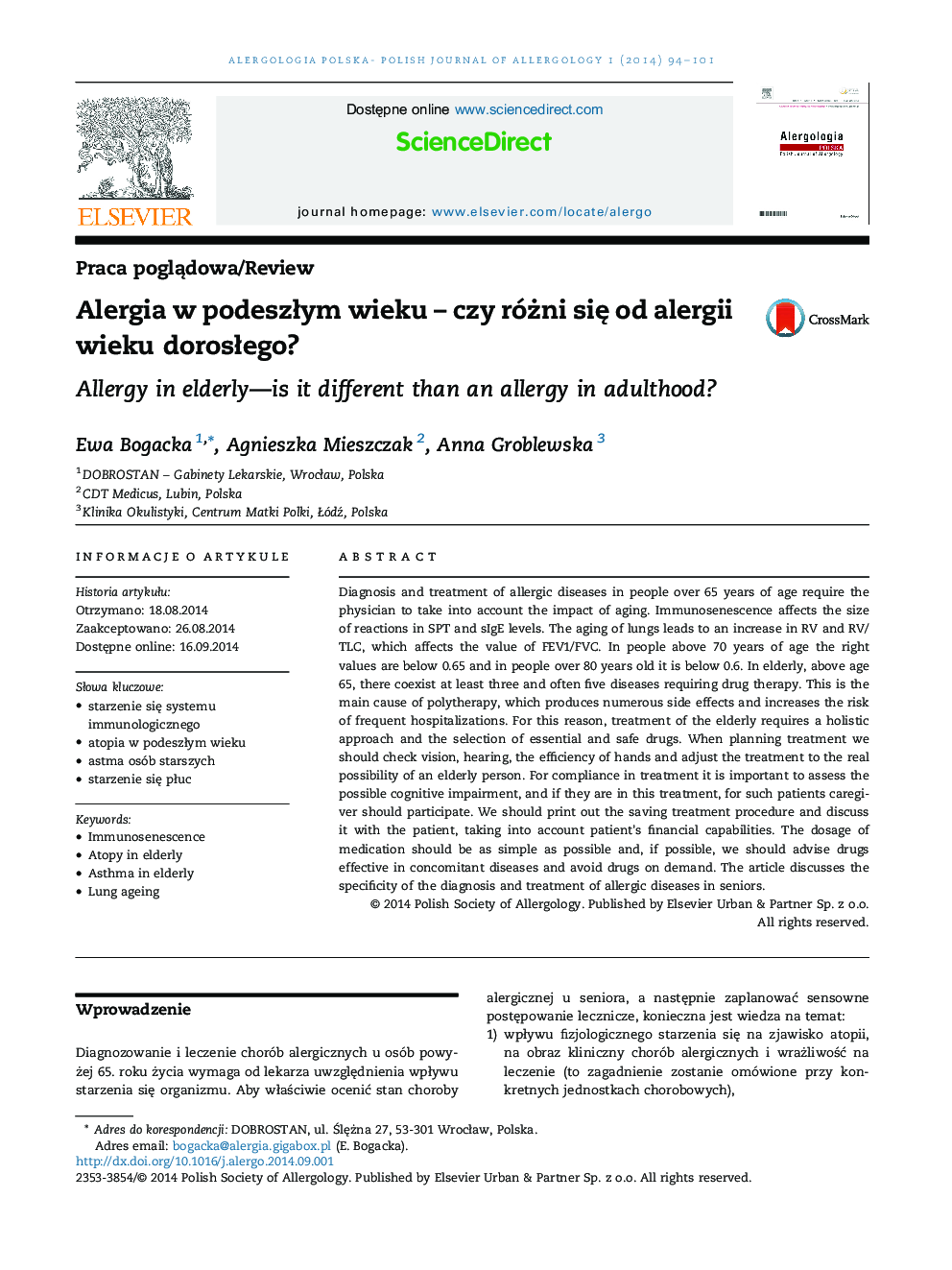| Article ID | Journal | Published Year | Pages | File Type |
|---|---|---|---|---|
| 3184301 | Alergologia Polska - Polish Journal of Allergology | 2014 | 8 Pages |
Diagnosis and treatment of allergic diseases in people over 65 years of age require the physician to take into account the impact of aging. Immunosenescence affects the size of reactions in SPT and sIgE levels. The aging of lungs leads to an increase in RV and RV/TLC, which affects the value of FEV1/FVC. In people above 70 years of age the right values are below 0.65 and in people over 80 years old it is below 0.6. In elderly, above age 65, there coexist at least three and often five diseases requiring drug therapy. This is the main cause of polytherapy, which produces numerous side effects and increases the risk of frequent hospitalizations. For this reason, treatment of the elderly requires a holistic approach and the selection of essential and safe drugs. When planning treatment we should check vision, hearing, the efficiency of hands and adjust the treatment to the real possibility of an elderly person. For compliance in treatment it is important to assess the possible cognitive impairment, and if they are in this treatment, for such patients caregiver should participate. We should print out the saving treatment procedure and discuss it with the patient, taking into account patient's financial capabilities. The dosage of medication should be as simple as possible and, if possible, we should advise drugs effective in concomitant diseases and avoid drugs on demand. The article discusses the specificity of the diagnosis and treatment of allergic diseases in seniors.
